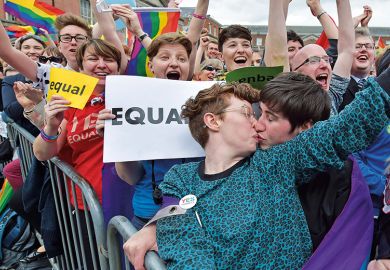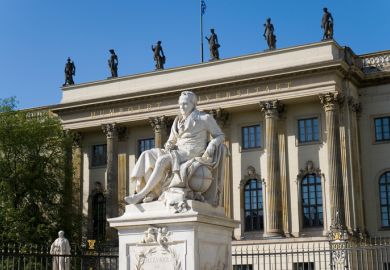Blending historical biography with critical analysis, Heike Bauer’s The Hirschfeld Archives offers readers a fresh opportunity to consider the influence and limitations of one of 20th-century Europe’s leading thinkers on sexuality.
The archives of the book’s title are partial, unstable and scattered, yet Bauer makes a virtue of this, destabilising prior understandings of Magnus Hirschfeld and his work to develop a response that goes beyond simple celebration or condemnation. To this archive, Bauer brings the intersectional work of Kimberlé Crenshaw, Sara Ahmed’s work on affect and the political philosophy of Judith Butler. The result is a complex, nuanced and politically relevant analysis of both Hirschfeld and queer culture.
Bauer begins her analysis by examining Hirschfeld’s relationship to racism and colonialism. Hirschfeld penned one of the first modern studies of racism, yet Bauer maps a more ambiguous relationship between the eminent sexologist and racial otherness. The political economy of scientific research stalks Hirschfeld’s archive and she draws attention to the fact that funding for research into sexuality at the time cannot easily be disentangled from the profits generated through the exploitation of colonised nations. She returns to Hirschfeld’s racial politics later in the book, drawing on Anjali Arundekar and Geeta Patel’s work on “citational underpinnings” to critique the absence of Asian women’s voices in The World Journey of a Sexologist , the travelogue he wrote while in exile from Nazi Germany.
Bauer contends that violence is a motivating force behind much queer activism and political thinking and she considers the role that suicide played in Hirschfeld’s scientific and political work. Queer suicide presents a double challenge to historians, with both the life and the death of the subject all too often hidden from view. Nevertheless, Bauer plots a course through Hirschfeld’s work, identifying the violence that underpins and motivates it, making connections between this and the uses of death as a motivating force in more recent queer activism. Bauer also attends to the materiality of Hirschfeld’s institute, communicating the significance of the building itself, which operated as a refuge for homosexual and transgender people, a place where social as well as medical support could be found. This sense of community makes the destruction of the institute at the hands of the Nazis – yet another form of violence against queer people – all the more powerful.
Refusing to pass simplistic judgement on Hirschfeld and his work, Bauer’s analysis resonates with contemporary debates over homonormativity, homonationalism, sexual racism and misogyny. By and large, the author leaves it to the reader to develop these associations. This is an oversight and weakens the conclusions she draws. It is also a pity because in many ways those associations are what makes this book so relevant. What The Hirschfeld Archives ultimately reveals is that much of what we are witnessing in queer politics and culture today is far from new, but instead has historical roots that date back to the very beginning of sexual liberation in Europe.
Sharif Mowlabocus is senior lecturer in digital media at the University of Sussex. His current work focuses on queer critiques of assimilationist politics in Western culture.
The Hirschfeld Archives: Violence, Death, and Modern Queer Culture
By Heike Bauer
Temple University Press, 230pp, £80.00 and £29.99
ISBN 9781439914328 and 4335
Published 23 June 2017
Register to continue
Why register?
- Registration is free and only takes a moment
- Once registered, you can read 3 articles a month
- Sign up for our newsletter
Subscribe
Or subscribe for unlimited access to:
- Unlimited access to news, views, insights & reviews
- Digital editions
- Digital access to THE’s university and college rankings analysis
Already registered or a current subscriber?








